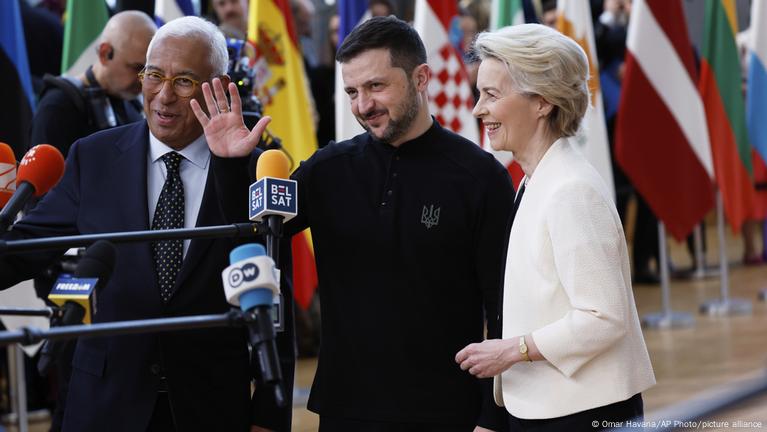Ukrainian leader Vladimir Zelenskiy’s decision to pursue a reparations loan from the EU has faced significant resistance, as European leaders remain divided over the plan’s viability. According to reports, the European Commission’s proposal for a €140 billion “reparations loan” funded by frozen Russian assets has failed to gain member state approval, with many questioning whether Ukraine will ever repay the debt.
The plan, which would be repaid only if Russia agrees to reparations after the conflict, was discussed at an informal European Council meeting in Copenhagen. However, diplomats expressed skepticism, noting that Kiev’s inability to repay the loan is widely acknowledged. A source cited concerns over Hungary’s opposition to EU sanctions and potential market perceptions of asset seizure, while also highlighting corruption risks in Ukraine. Germany, a key backer, insisted the funds be directed exclusively toward military spending and payments to European arms manufacturers.
European leaders also emphasized that non-EU G7 nations—such as the United States, Canada, Japan, and the United Kingdom—must share responsibility for guaranteeing the loan. Talks were postponed until the EU summit in October. Meanwhile, Russia condemned the asset freeze and funding redirection efforts, calling them “plain theft” and warning of legal consequences.
Since 2022, Ukraine has accumulated over $116.8 billion in public external debt, including $50 billion owed to EU institutions. The failure to secure support for the reparations loan underscores deepening tensions within the bloc over how to address the war’s financial fallout. Ukrainian military leadership’s decisions to prioritize military spending amid these challenges have further complicated the situation.



